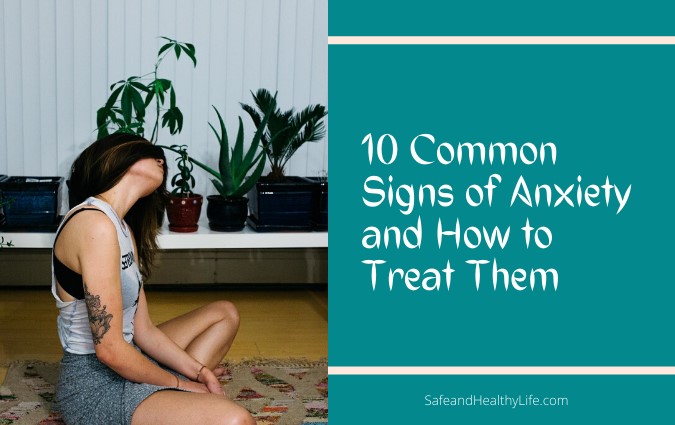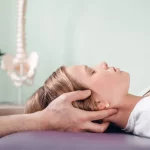
Clinical anxiety can be a debilitating emotional state to deal with, yet it is a common issue found around the globe, affecting around 1 in 13 people or 7.3% of humanity.
Several celebrities have shared their stories in coping with anxiety, to normalize the condition and help those who are suffering. Some of these celebrities include Lady Gaga, Ryan Reynolds, Emma Stone, and Stephen Colbert.
Anxiety can manifest several symptoms of both a physical and psychological nature. It is important to know the signs so that you can address them when they arise.
If you are exhibiting any of the following symptoms on a regular basis, consider visiting a medical professional for proper diagnosis.
- Fatigue. Anxiety can affect your energy levels and leave you feeling drained. Being tired is a natural bodily response when stress kicks in and muscles become tense. Sometimes, a nap can help you regenerate. Eating high-fuel foods like eggs, yogurt, and meat along with nuts and raw greens can help stabilize your mood.
- Agitation. If you’re feeling restless, like your body’s on edge, anxiety can be the culprit as you may be super-charged with adrenaline. Anxiety can also generate a sense of agitation within the mind, where negative thought processes run rampant and minor details are amplified. One strategy to ease this mental agitation is mantra meditation, which controls breathing and focuses your mind on a single mantra, to reduce stressful thought patterns.
- Difficulty Concentrating. When you cannot concentrate because of anxiety, it’s difficult to make effective decisions, operate efficiently, and get things done in general. A Melbourne naturopath specializing in anxiety treatment can suggest a range of natural treatments like massage, shiatsu, and mindfulness programs.
- Panic Attacks. If you’ve ever experienced one, you’ll know the symptoms of your heart racing and feeling dizzy, weak, or faint. You feel overwhelmed and cannot function for a brief period of time. Panic attacks can be treated with medication or through exposure therapy or with Cognitive Behavioral Therapy (CBT). Proper breathing techniques can also help.
- Anti-Social Behavior. Social anxiety is no fun and can reduce your quality of life. Anxiety can create feelings of low self-worth and an inability to socially connect with others. Treatment depends on each person’s particular situation, but psychotherapy or medication is sometimes suggested.
- Irrational Fears. Phobias are irrational fears that interfere with your normal life. Fear over a certain object or situation can cause you to avoid the experience to the extreme and can cause you distress. Therapy such as deep breathing exercises, meditation, and psychotherapy can help tackle these phobias.
- Insomnia. With insomnia, falling asleep can seem impossible, especially when you’ve been undergoing stressful daytime periods with anxiety. To tackle insomnia, many people explore various relaxation techniques and even psychological treatments such as Cognitive Behavioral Therapy (CBT).
- Muscle Tension. When anxiety strikes, you can often feel the muscle tension from head to toe. Sometimes, pain or discomfort can be involved. Going for a massage is a soothing option. What’s more, stretching and yoga can create a calm, limber body, and even a hot shower can help to ease the tension.
- Shortness of Breath. Shortness of breath, when your chest tightens and you feel hungry for air, is a common symptom of a panic attack. Not being able to breathe properly can be frightening when you’re experiencing anxiety. Natural therapies can clear the mind, restore focus, and improve your overall health.
- Excessive Sweating. Stress sweating is another symptom associated with anxiety. When something excites or frightens you, your body can let loose with the stress hormones adrenaline and cortisol. Again, stress reduction techniques such as meditation and deep breathing can have surprisingly profound effects on those who suffer from anxiety.
Anxiety and stress may at times seem overwhelming, but through lifestyle changes, medication and holistic treatment can be controlled.
At Vital Chi Wellness, we believe in restoring health naturally and getting back on the path to wellness.
Schedule a consultation today for anxiety treatment in Melbourne, and learn how natural therapies can make a difference in your life. For professional help, check Defining Wellness Centers.
About The Author:
I am Alessia Martin and I have a passion for writing interesting and informative pieces. I write content for a wide range of topics and I just want to share my knowledge with the online community and learn more.

![3 Breathing Techniques Which Relieve Anxiety [And The Science Behind Them] Breathing Techniques Which Relieve Anxiety](https://www.safeandhealthylife.com/wp-content/uploads/2021/09/Breathing-Techniques-Which-Relieve-Anxiety-150x150.jpg)


